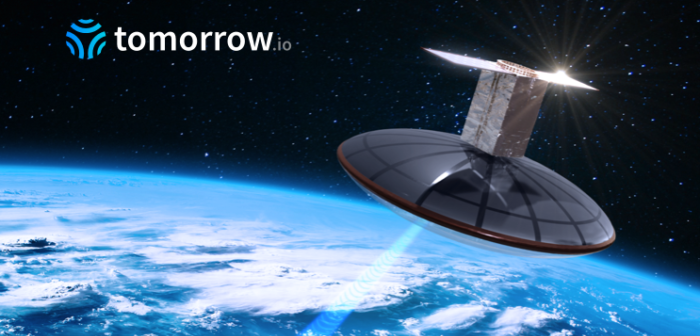Boston-based weather intelligence specialist Tomorrow.io has unveiled its plans to introduce microwave sounders as additional sensors in its future weather satellite constellation.
The addition of microwave sounders to the company’s constellation of radar-equipped weather satellites would create the first commercial multi-sensor weather satellite system owned and operated by a private company.
The combined sensing capabilities from radars (active microwave sensors) and sounders (passive microwave sensors) will allow Tomorrow.io to acquire multiple types of near real-time, global atmospheric data critical to improving weather forecasts. When fed into Tomorrow’s models and its Weather and Climate Security software platform, the data is expected to enhance the ability of organizations to proactively prepare for and mitigate the business impact of weather. Tomorrow.io will also offer data-as-a-service to government agencies worldwide.
Tomorrow.io previously announced plans to launch a constellation of radar-equipped satellites to collect global precipitation data with hourly revisit rates. Radar provides vital observations of the global water cycle for weather forecasts, yet much of the world lacks ground-based radar coverage with virtually no coverage across the oceans, limiting the ability to generate reliable weather alerts.
Augmenting the company’s planned satellite constellation with microwave sounders would improve the global revisit rate for precipitation data and enable the acquisition of additional measurements such as three-dimensional temperature and water vapor profiles at an improved refresh rate, helping to improve hurricane forecasting, flood alerts and natural disaster management.
Rei Goffer, co-founder and chief strategy officer of Tomorrow.io, said, “A multi-sensor satellite constellation composed of both active and passive microwave instruments would allow us to observe the global atmosphere in near real time. This paves the way to improving access to weather forecasting for everyone. The dual-sensor approach is a critical step in accomplishing our core mission of providing weather intelligence to businesses, countries and individuals around the world to enable climate adaptation at scale.”
Earlier in March, Tomorrow announced the successful completion of a critical design review of its proprietary weather radar satellites with the US Air Force (USAF). Last year, the USAF awarded a US$19.3m contract to Tomorrow.io to support the development of the company’s first four weather satellites. The first satellites are expected to launch in late 2022, with a full constellation expected to be in orbit by 2024.



